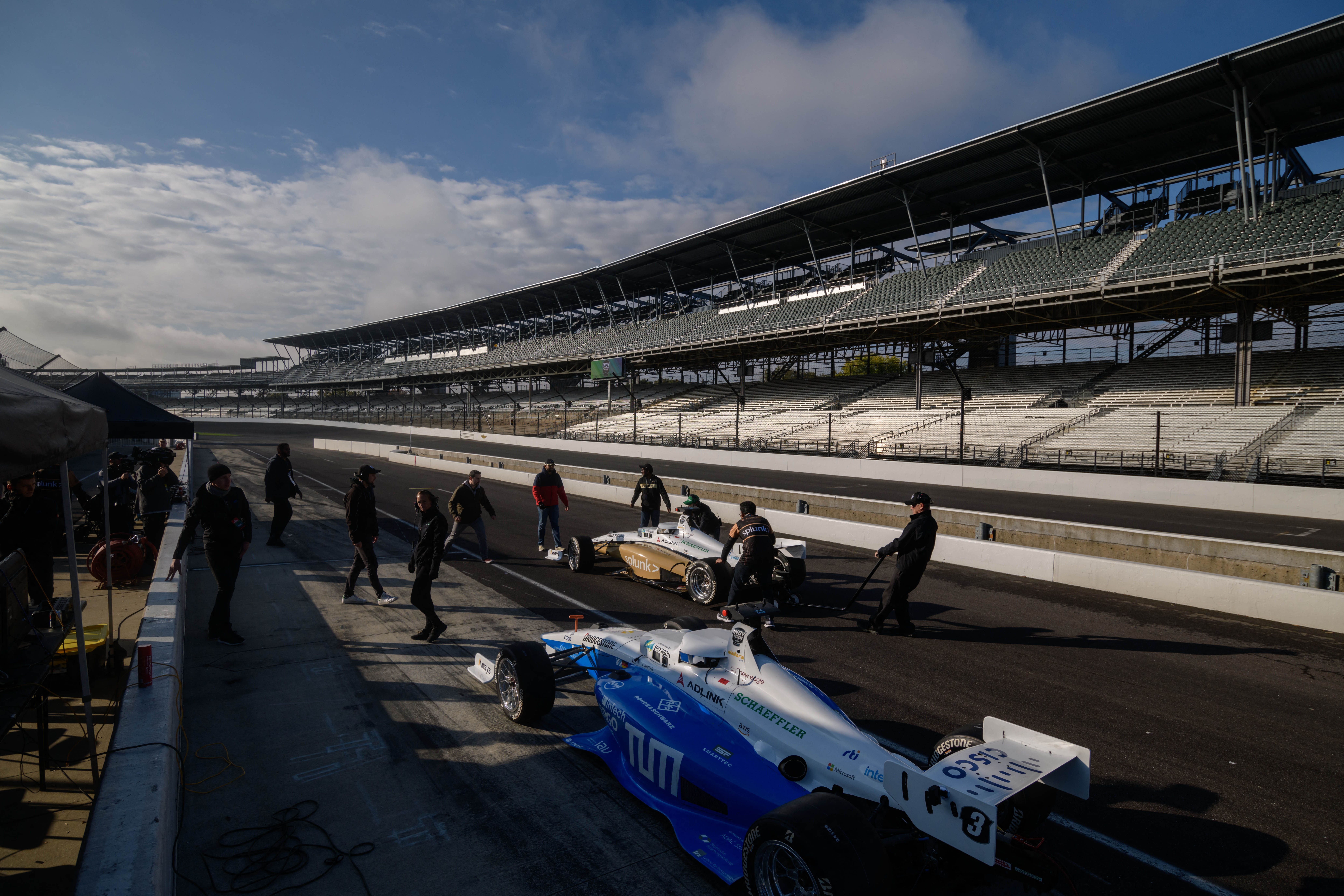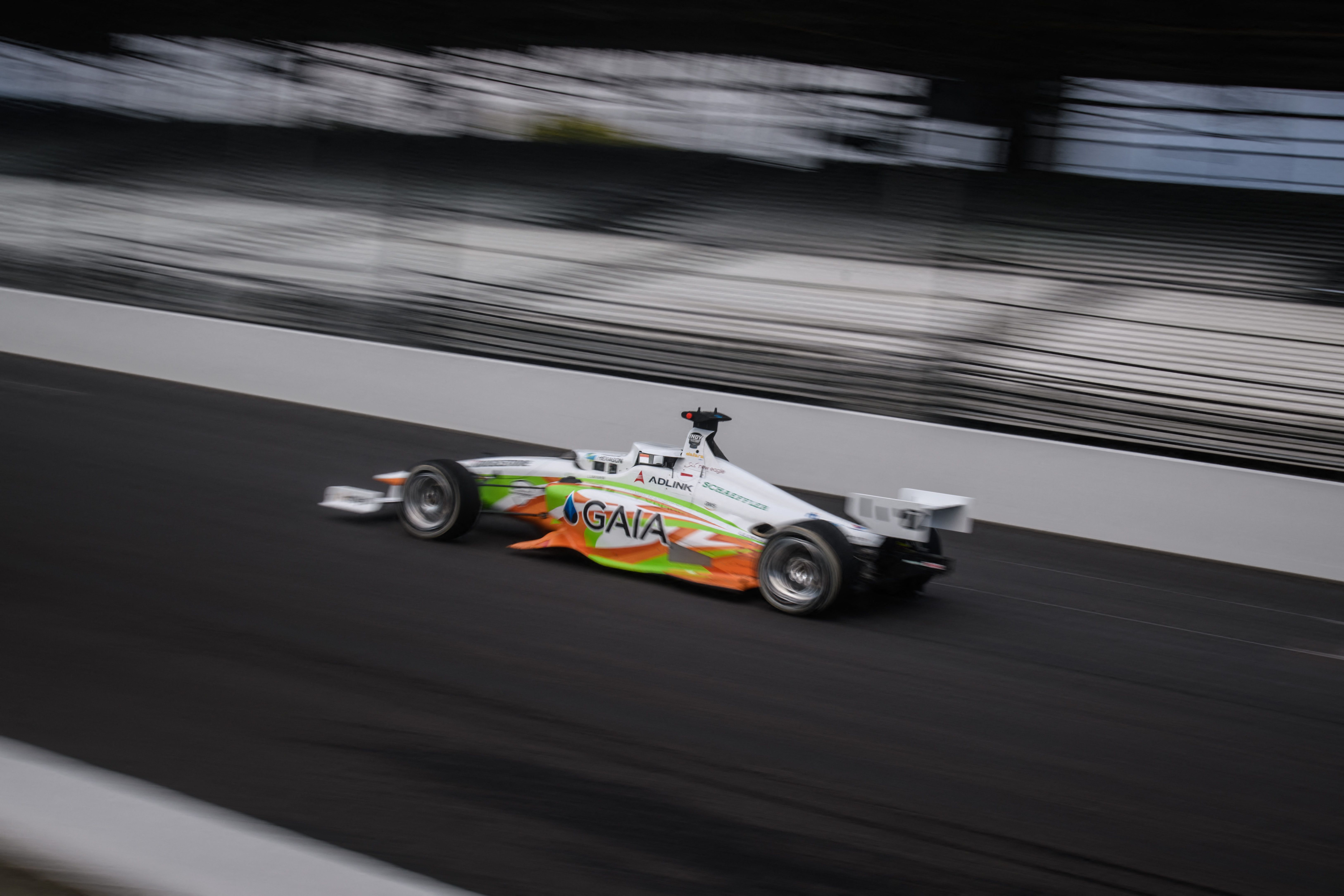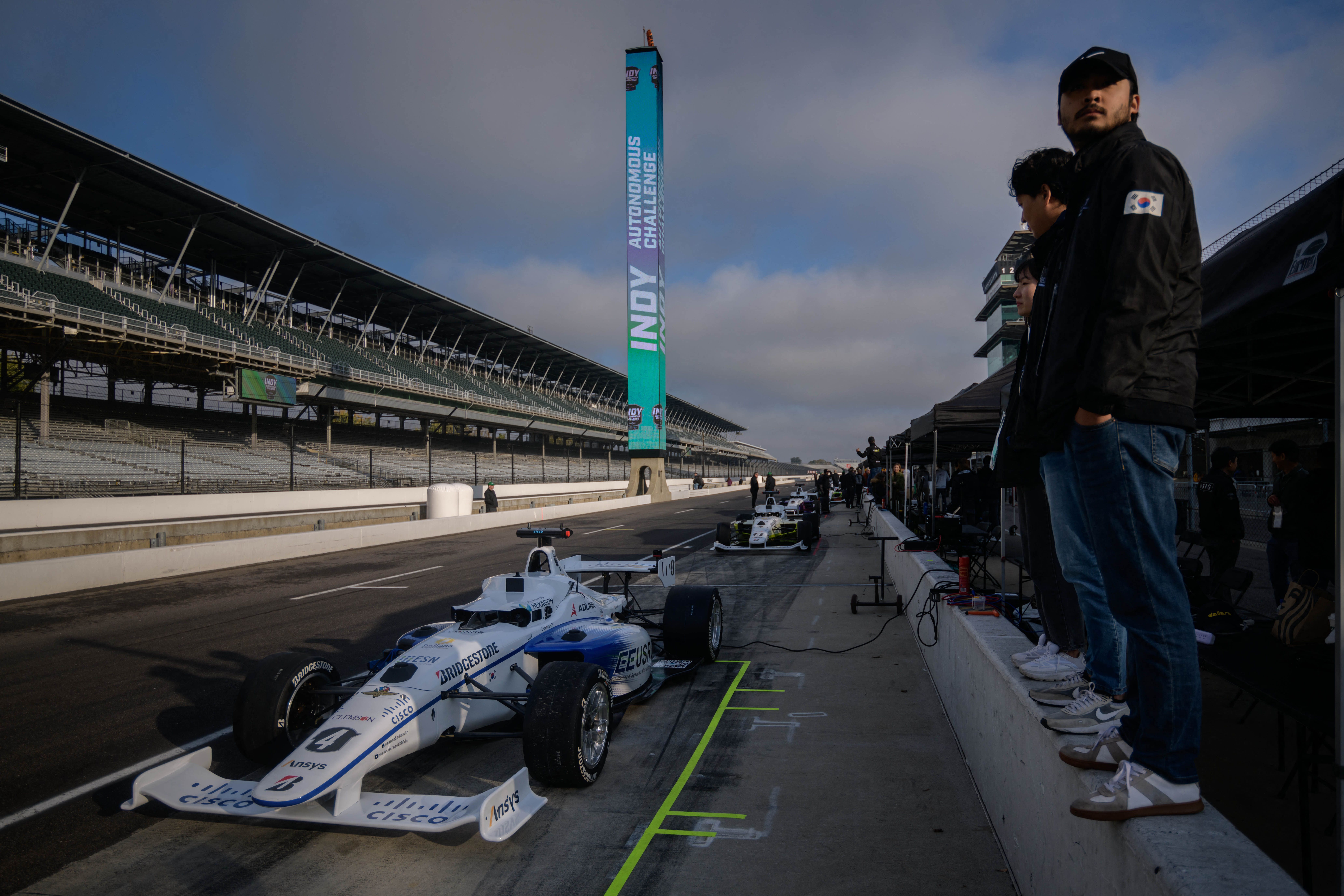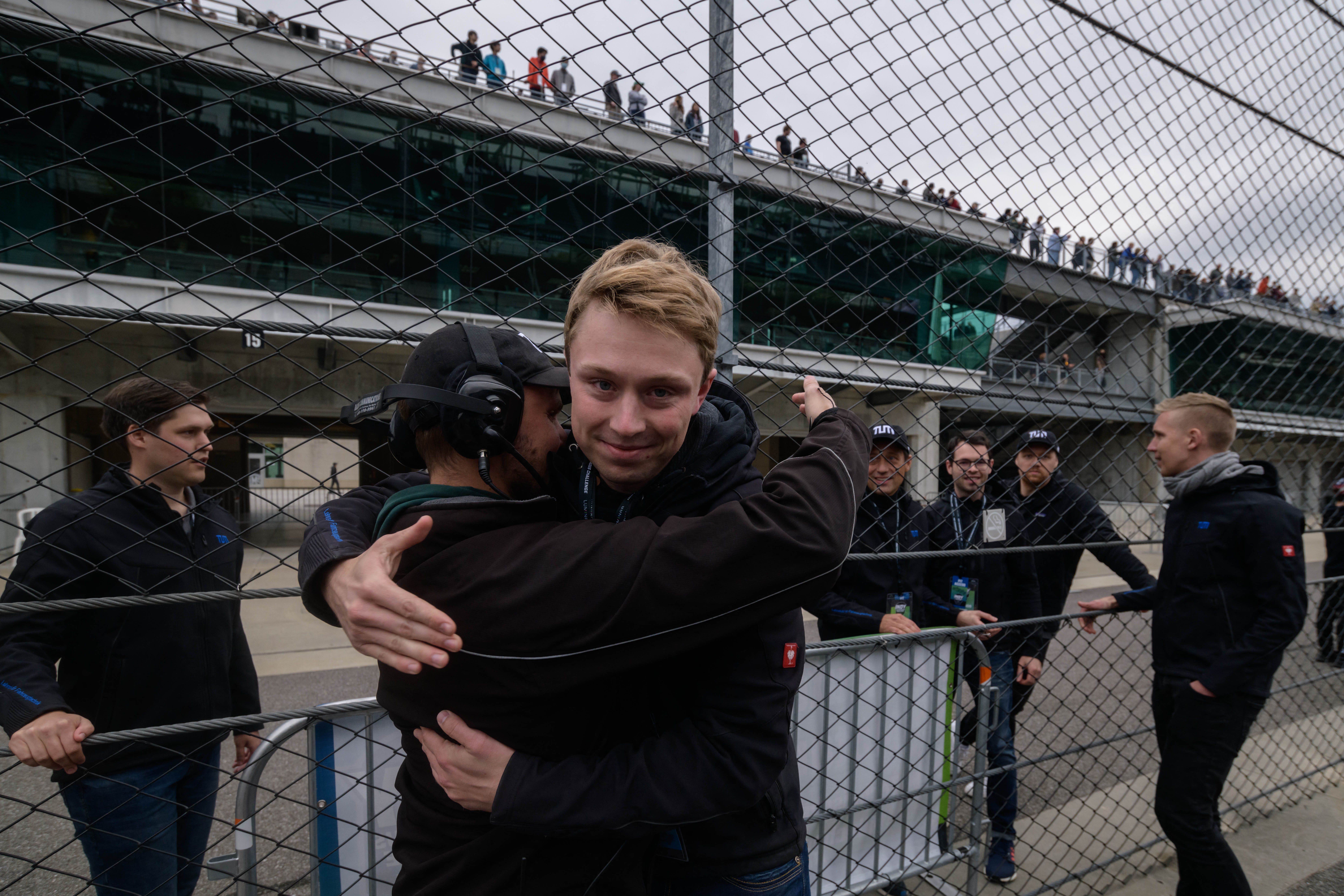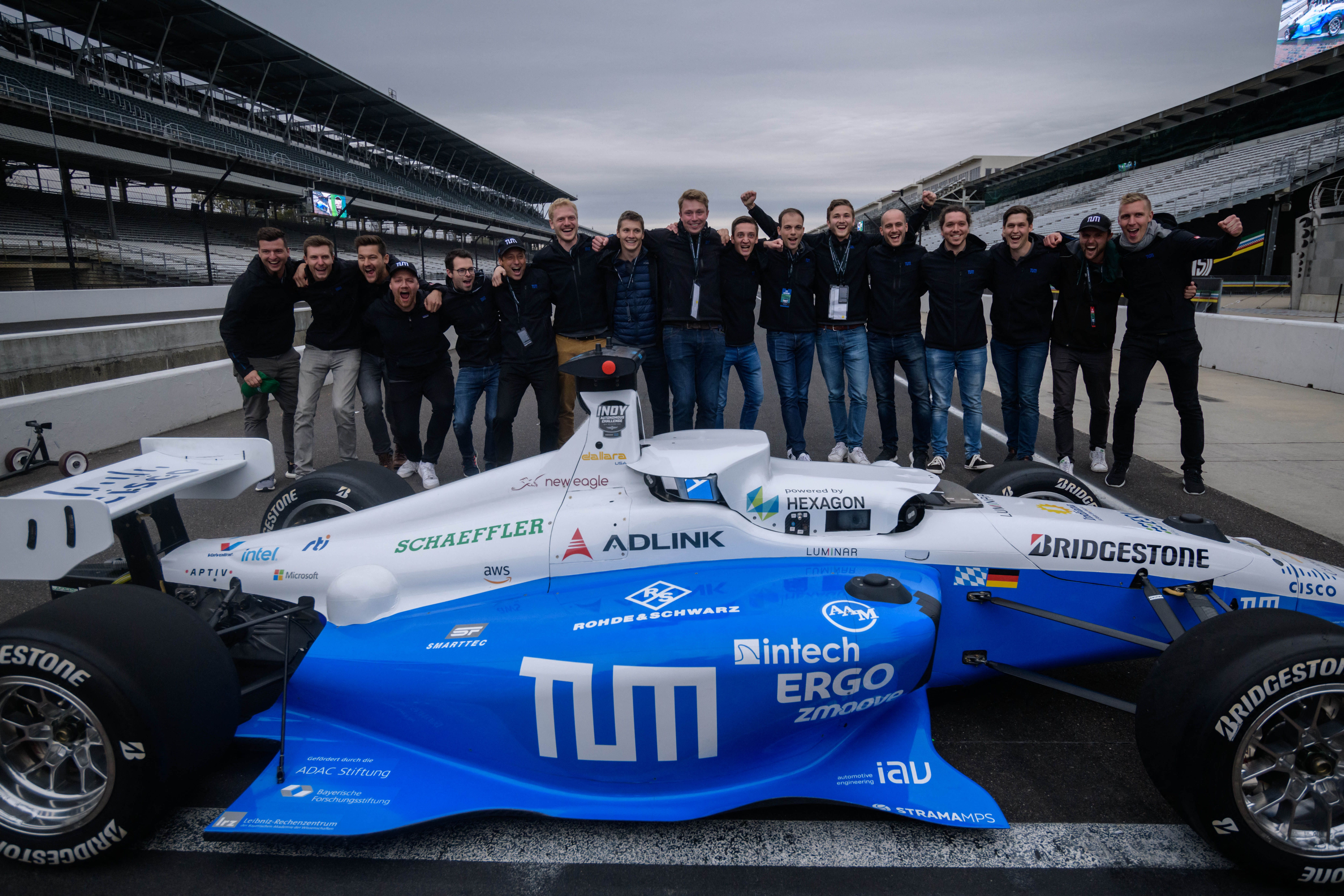Oct 25, 2021 - Sports
Indianapolis Motor Speedway hosts first-ever driverless car race
Add Axios as your preferred source to
see more of our stories on Google.
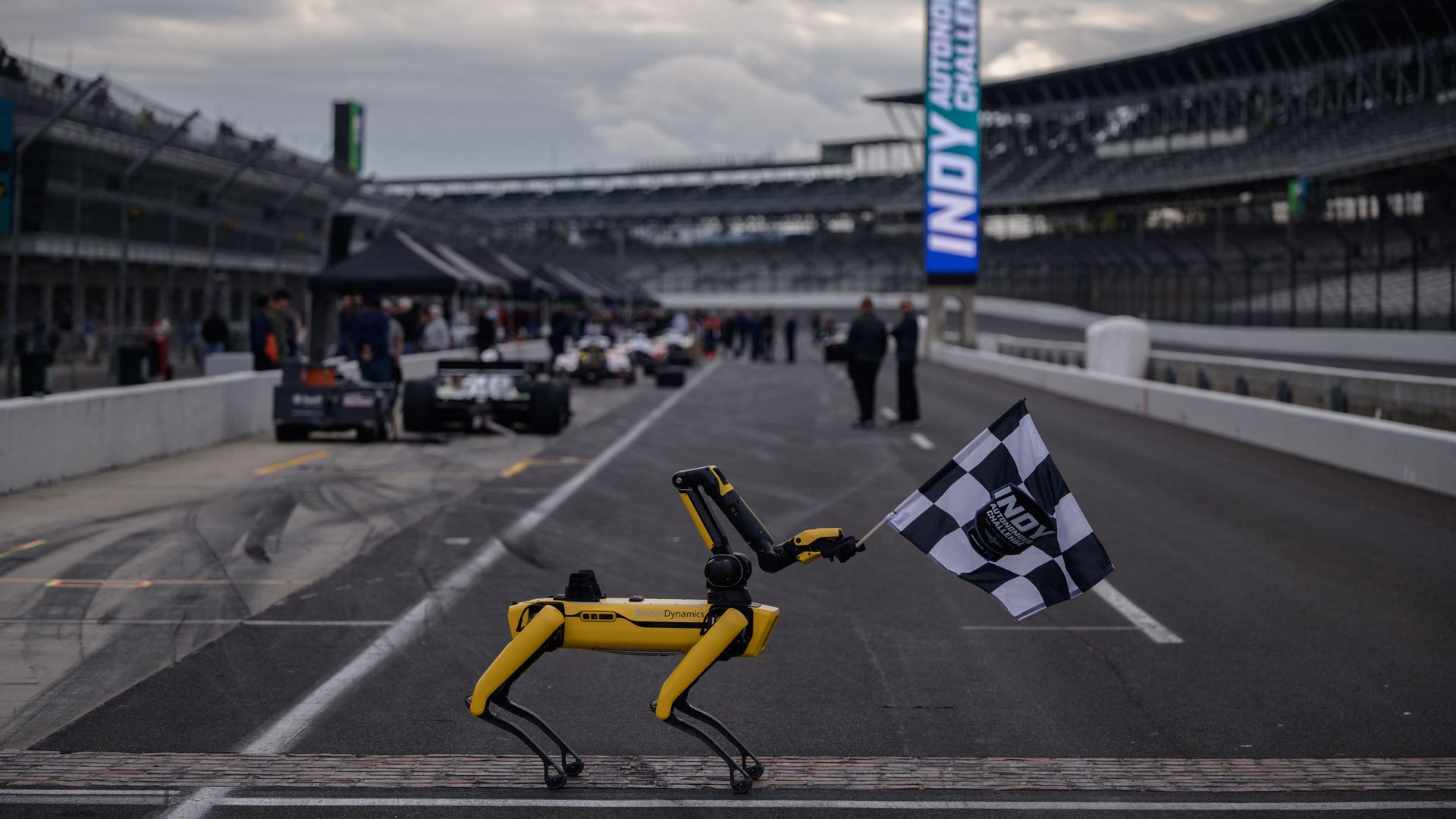
Boston Dynamics' robot dog holds the starting flag on the grid of the Indy Autonomous Challenge race at the Indianapolis Speedway on Oct. 23. Photo: Ed Jones/AFP via Getty Images

